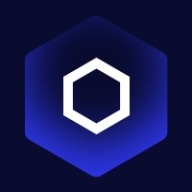

Sonatype Lifecycle and GitHub Advanced Security compete in the software security management category. Users generally favor GitHub Advanced Security for its feature-rich offerings that justify its cost.
Features: Sonatype Lifecycle offers detailed vulnerability identification and reporting, comprehensive support, and accuracy in vulnerability insights. GitHub Advanced Security integrates seamlessly with GitHub workflows, becomes an integral part of the development pipeline, and provides extensive features.
Room for Improvement: Sonatype Lifecycle could enhance integration with other development tools, broaden its management scope, and allow for better customization. GitHub Advanced Security could improve vulnerability management customization, expand its management features, and increase integration capabilities with applications outside the GitHub network.
Ease of Deployment and Customer Service: Sonatype Lifecycle is known for straightforward deployment and efficient customer service that resolves issues effectively. GitHub Advanced Security offers tight integration with GitHub but has a steeper learning curve, with customer service regarded as adequate.
Pricing and ROI: Sonatype Lifecycle offers a low setup cost and fast ROI, making it more cost-effective. GitHub Advanced Security, although more expensive with a higher upfront investment, provides significant benefits that validate the price for many users.
| Product | Market Share (%) |
|---|---|
| GitHub Advanced Security | 4.3% |
| Sonatype Lifecycle | 2.0% |
| Other | 93.7% |


| Company Size | Count |
|---|---|
| Small Business | 1 |
| Midsize Enterprise | 4 |
| Large Enterprise | 7 |
| Company Size | Count |
|---|---|
| Small Business | 13 |
| Midsize Enterprise | 8 |
| Large Enterprise | 29 |
GitHub Advanced Security secures data by scanning for vulnerabilities in dependencies, secret scanning, and protecting sensitive information. It integrates seamlessly, reducing reliance on multiple tools and optimizing vulnerability detection.
GitHub Advanced Security is designed to enhance security awareness by offering comprehensive tools for secret scanning, code analysis, and SCSS dependency checks. AI-driven features deliver accurate security insights while minimizing false positives. It provides valuable integration with Azure DevOps, maintaining control within dashboards and enabling external systems' support through APIs. With CodeQL, users can perform custom queries across projects. Propelled by Microsoft, the platform enhances operational frameworks with essential security features, although improvements are needed in dashboard consolidation, reporting, and integration mechanisms. Users seek better customizability, language support, and training resources to ensure smoother implementation.
What are the key features of GitHub Advanced Security?Industries implement GitHub Advanced Security to maintain robust security standards. It is favored by technology sectors seeking seamless integration with Azure DevOps and looking for customizable security tools tailored to project needs. Financial institutions value its accurate threat detection and compliance support, while enterprises focus on its comprehensive dependency scanning and code analysis capabilities to safeguard critical assets. The adaptability of GitHub Advanced Security across different operational environments illustrates its practical benefits.
Sonatype Lifecycle enhances enterprise security, helping reduce software risk efficiently. It offers automation and high-quality data to manage open source and AI risk across the SDLC, facilitating quicker issue resolution.
Sonatype Lifecycle reduces software vulnerabilities by offering advanced automation capabilities, ensuring reliable management of open source and AI risks. Through Golden Pull Requests, smart recommendations, and zero-effort fixes, it helps maintain software quality without disrupting development. Its adaptable policies enforce security, legal, and quality standards effectively, reducing potential rework and production issues. The platform provides deep insights into vulnerability, license, quality, and architecture, allowing teams to prioritize risks effectively while continuously monitoring changes. Comprehensive enterprise reporting boosts visibility into the effectiveness of security programs.
What features does Sonatype Lifecycle offer?Sonatype Lifecycle is widely used to enhance security across industries by automating DevSecOps and integrating into build pipelines. Companies employ it for proactive monitoring of third-party libraries, ensuring compliance with licensing standards, and managing firewalls to prevent insecure components. It supports organizations in maintaining robust software supply chain security.
We monitor all Application Security Tools reviews to prevent fraudulent reviews and keep review quality high. We do not post reviews by company employees or direct competitors. We validate each review for authenticity via cross-reference with LinkedIn, and personal follow-up with the reviewer when necessary.